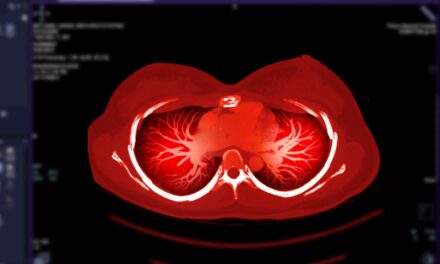Researchers at Duke University Medical Center have found that an invasive cell that leads to pulmonary fibrosis may be stopped by cutting off its supply of sugar. Currently, lung transplantation is the only therapy available for patients suffering from idiopathic pulmonary fibrosis (IPF) in the United States.
The study was published in the Journal of Experimental Medicine.
The Duke researchers identified a cell surface receptor on the invasive cells called myofibroblasts and an enzyme that produces a sugar the receptor recognizes. The researchers used a mouse model and later, human cells from IPF patients, to show that the invasive type of cells depends on both the enzyme that makes a sugar called hyaluronan and the cell receptor that recognizes hyaluronan, CD44.
The researchers reduced lung fibrosis in living mice by treating them with a blocking antibody against the CD44 receptor or stopping the production of the enzyme that produces hyaluronan.
“The animal model we used targeted excessive production of hyaluronan in the myofibroblasts,” said Paul Noble, MD, division chief of pulmonary, allergy, and critical care medicine at Duke. “We found that these cells invaded and destroyed surrounding tissue matrix similar to the behavior of cancer cells during metastasis.”
The invasiveness occurs when the myofibroblast produces excessive hyaluronan. Because the sugar is necessary for living (embryos without it don’t develop), the sugar production cannot be completely blocked. Instead, the overproduction of the sugar must be stopped to keep the invasive cells from overtaking the spaces in the lung where vital gas exchange occurs.
According to Noble, the process of fibrosis in the lung is like a healing wound on skin. The fibrotic cells clamp down, pull in the skin, and hold it together more tightly. In the lungs, this clamping down of small airways prevents essential respiration and leads to death due to irreversible loss of lung function.
An earlier study Noble published in Science Translational Medicine showed that intracellular signaling proteins called beta-arrestins were necessary for fibroblasts to invade tissue. Mice with a targeted deletion in beta-arrestins didn’t develop severe pulmonary fibrosis.
The two studies, taken together, suggest several approaches to treating invasive fibrosis in the lungs, said Noble.
Source: Duke University Medical Center








